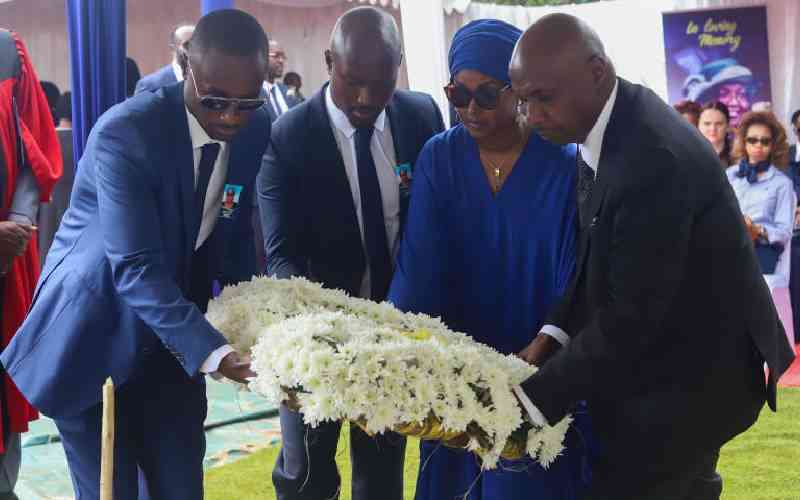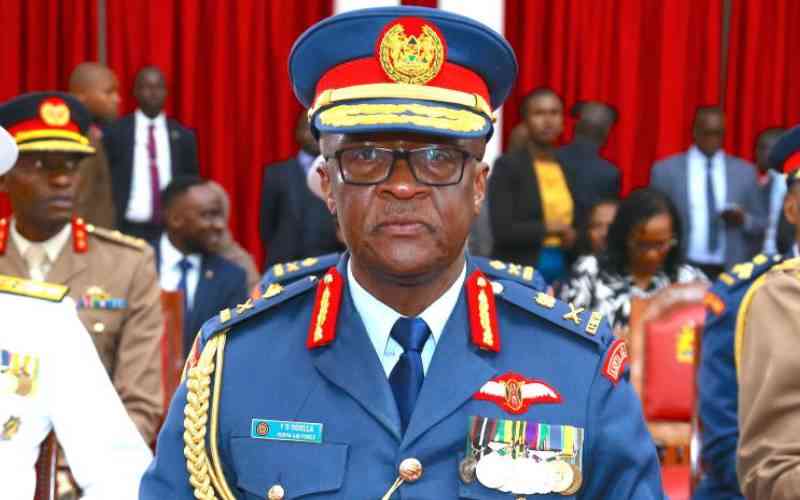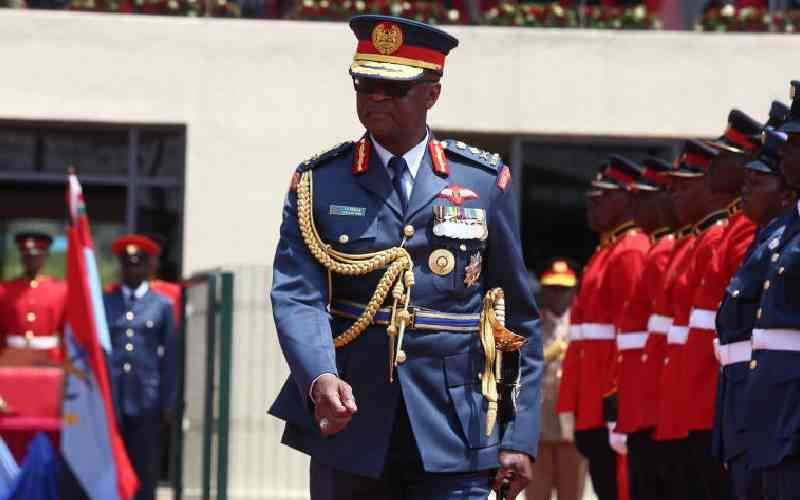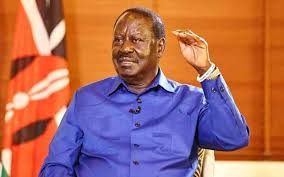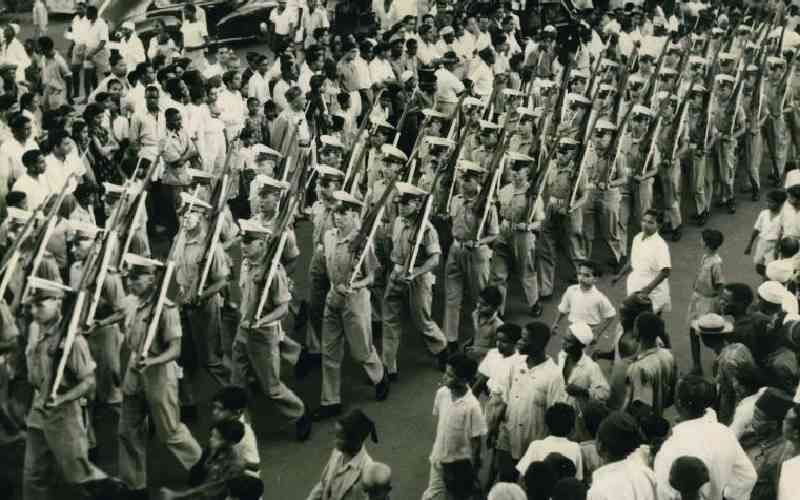
In the eyes of collaborators, colonialists were benevolent and were keen to improve the lives of Africans.
But the British colonialists' stay in Kenya marked one of the darkest phases in the country's history where many were maimed, incarcerated, killed and forced to work.
It marked the start of the disruption of the African way of life, the death of local industries and exploitation of natural resources as the colonialists tightened their grip on the country.
Not even children were spared the excesses of the British colonialists after they declared Kenya a protectorate on June 18, 1894.
Supported by a loyal army of local collaborators and chiefs who danced to their rhythm, the British established an empire of extortion, exploitation, murder and harassment.
While some resented the change, some chiefs grabbed the opportunity to transform the country and lobby for development.
A book celebrating the life and times of colonial collaborator Paul Mboya gives an insight into the British operations before setting the country free in 1963.
The book, 'Paul Mboya; A portrait of a great leader', authored by Godfrey Sang and Vincent Orinda, details key events in the country's history.
Mboya, a colonial paramount chief who saw it all, served a government that tormented Africans. He saw the country when it was still green and unscathed. He was there when the British came, when they exercised their rule and when they finally left in 1963 after handing over power to Kenyans.
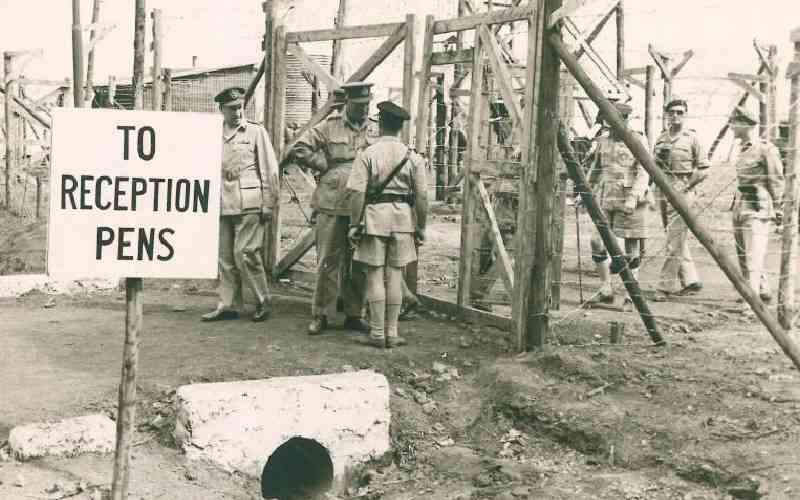
And although the existence of colonialists was a mixed bag of fortunes for Kenya, their regime tested the country's stress levels.
It all started on June 18, 1894 in Zanzibar when the British declared Uganda its protectorate. Although the decision was made in the absence of Africans, it would be the turning point in the British occupation of Kenya.
Parts of Nyanza and Rift Valley fell under the Ugandan protectorate. The protectorate would later become the Kenyan protectorate in 1920.
Natives were in the dark and did not know that a life-changing decision had been made that would drastically change their lives.
As part of the efforts to implement its new move to exercise a rule of the territory, the British settled on Charles Hobley to oversee operations as a political officer. He was assigned the role of taking over the Nyanza territory.
In Nyanza, the colonial regime appointed chiefs to help with the administration of their territories. Chief Anam Ulwa was appointed to lead Yimbo while chief Orinda was tasked to oversee operations in Karachuonyo.
While the Luo accepted British rule, some communities did not accept and this marked the start of hostilities in the region.
The colonial regime was ready to do everything to ensure that it stamps its authority in the region. The goal was to win over the region through peace or conflict. The end game was one. The country would submit to the authority of the British.
And in 1902, they established an administration in Kericho. In the region, they were facing hostilities from the Kipsigis and the Nandi who were opposed to their rule.
A similar development was also taking place in Kisii where the Gusii community was also against their occupation. And so when the colonial government sent Assistant District Commissioner Geoffrey Northcote to establish the British rule in Kisii in 1907, war broke out.
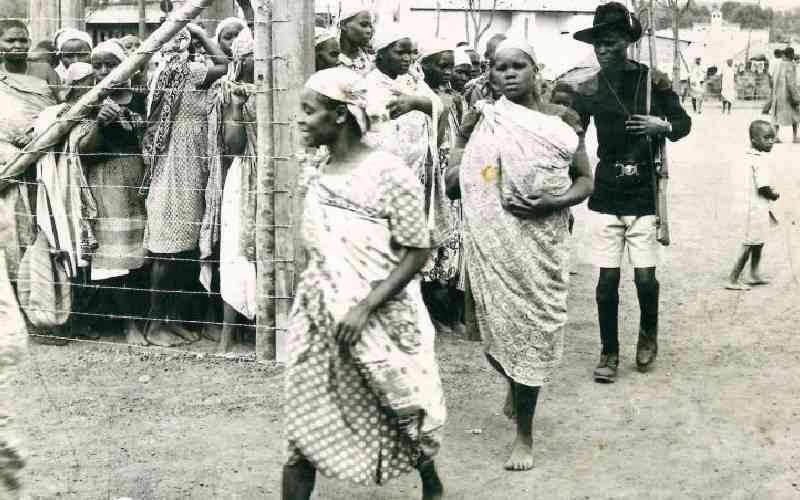
In the fighting, the British massacred about 200 Kisiis. The death toll was one of the highest from atrocities committed by the British at the time.
Northcote who led the onslaught also suffered stab wounds after he was speared by a Kisii warrior called Otenyo.
This, however, did not end well for Otenyo. He was captured by the British and was decapitated. Another woman, Moraa, who led the fight against the British, was also murdered.
Paul Mboya's book reads: "It was a bloody introduction to the British administration".
Following the massacre, Sir Winston Churchill feared the massacre was going to affect their operations in East Africa if it reached the House of Commons back in England.
Churchill described the massacre as a "butchery". But the message was home. The region would work with the new colonial administration.
As a response, the British forced peace on the region and everything settled.
But that did not end the British colonial terror, it was just the beginning. Several arrests, murder and forced conscription to fight in its wars with other countries would also follow.
In the economic front, its companies had already set their eyes on the new opportunity to exploit the country's rich minerals and natural resources while enjoying forced labour.
By 1911, a British Company Brunner, Mond & Co had set up base in Magadi to mine Soda Ash. Because the work of mining Soda Ash was labour-intensive and demanded serious manpower, the British turned to Africans.
Other factories had also set base across the country and would send requests to the DC to help with forced recruitment of Africans.
Local chiefs were tasked with finding recruits which was done in chief barazas. Elders who attended the meetings would be asked to convince their sons to join the work.
With the colonial regime also imposing hefty taxes on Africans, many did not have any other option but to take up the hard labour at Magadi.
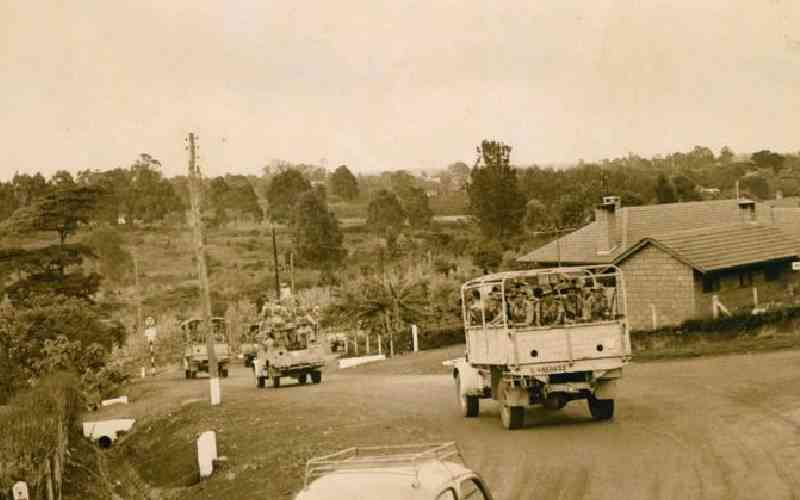
The work at Magadi was not for the faint-hearted. It was tough. Everything was done by hand in the scorching heat. The workers cut through the trona by hand and carted pieces to the processing plant on foot.
Mboya was among the workers who mined Soda Ash.
He used the opportunity to expand his worldview. It was here that he understood the value of education and how it could change his future. At the time, Africans could not change employers at will.
The mineral would then be transported through the rail to Mombasa where it would be placed in warehouses before being shipped out from Kilindini harbour.
He begged his employer to allow him to attend school. He would then join the Buxton school, a missionary school in Mombasa.
Things, however, changed again in 1915, when the British decided to conscript Africans to fight in World War I. The war led to the death of about 100,000 Kenyans.
By the end of 1915, the British government had conscripted 400,000 to form its fighting unit in Voi. Chiefs had been tasked with helping the King's African Rifles to recruit built men who would participate in the war.
To reach Voi, the recruits had to trek from various parts of the country. Although there was an active railway line, it was a target of the German army. The situation left Africans with no option but to trek all the way to Voi.
In the war, the British also pushed them to work as porters and would carry on their back supplies for the army. Kenyans who were part of the force would walk several kilometres with the suppliers on their back.
An attempt to quit the army was as much a punishment as fighting in the army.
The British would track deserters to their home, arrest them and incarcerate them. In 1916, eight deserters were tracked and charged in the South Kavirondo Local Native Tribunal.
In Nyanza, a group of missionaries from the Seventh Day Adventist Church who tried to stop the recruitment met the wrath of the colonial administration and were expelled.
Oscar Watkins who let the recruitment claimed that the reasons that had been fronted by the Adventists against participating in the armed conflict were not convincing.
The Adventists had claimed that participating in the conflict would violate the Sabbath and was also pushing for peace.
At the time of their entry into the country, the British colonialists also pushed for the establishment of companies from Britain that quickly changed the future of local industries that had existed.
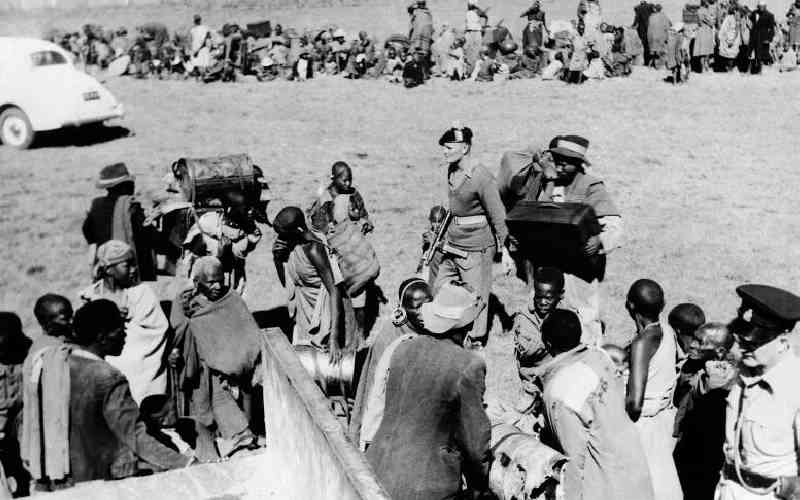
Local industries that thrived at the time included those that made hoes, machetes and metal ornaments, among others. Local blacksmiths played a crucial role in the creation of the materials.
When the colonial regime came, however, all this changed. British companies took over the industry. Hoes and forks were now manufactured by British owned factories. This was also compounded by the introduction of money as the form of exchange.
And with the developments, Africans were pushed to work for the British companies.
But this was not enough, the British also introduced punitive taxes on Africans. The taxes were some of the new adjustments that Kenyans had to contend with.
Each family was forced to pay taxes for each hut. The taxes were called The Hut and Poll Tax.
Local chiefs who collaborated with the colonial government would move to each home and picked up a straw from each hut to decide the amount of tax the home would pay.
In Karachuonyo, colonial chief Oganyo Odero undertook the process on behalf of the colonial government at the introduction of the taxes.
The introduction of the taxes changed the region drastically. Men were forced to leave their homes to look for work outside their areas of comfort to pay taxes.
Those who failed to pay the taxes were incarcerated by the colonial government. With all huts expected to pay tax, polygamy was also affected with some people rethinking their trend of building all their wives houses.
In the years that followed, taxation continued with other additional taxes also being introduced.
When Mboya became a chief, he was also among those who tasked with collecting the taxes from the Africans.
It was mandatory to pay taxes to the colonial government and in most cases collaborators engaged in a cat-and-mouse game with Africans as they sought taxes.
On February 4, 1937, Mboya surprised the colonial administration when he collected Sh100,000 taxes.
Kenneth Hunter, the then District Commissioner for South Kavirondo, was left in awe by Mboya's success.
All males were required to pay Sh12 for poll tax as well as Sh2 for the Local Native Council. Those who refused to pay were prosecuted.
As the colonial regime took over the country's landscape, another trend emerged where they would lure children to begin working in tea factories that had also been established in Kericho.
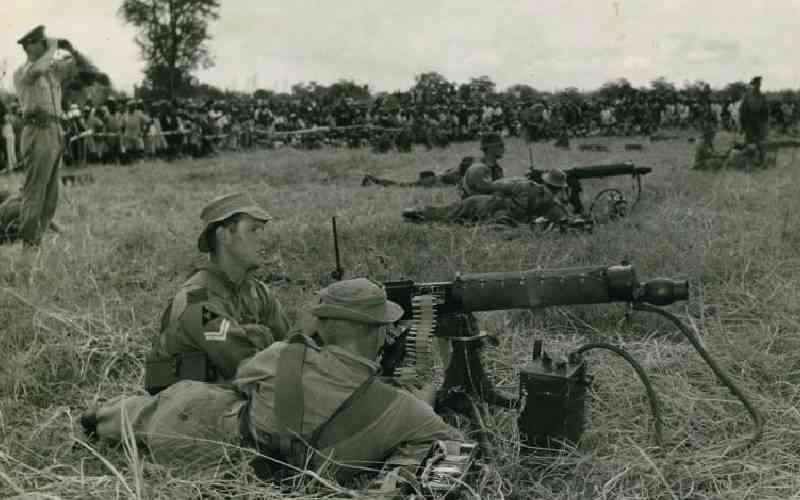
The British used child workers in several tea factores that had been set up in Kericho. Those that had started going to schopl were forced to quit to join the tea-picking business.
Child labour was at the centre of tea production in Kericho. The British would send their collaborators to markets to lure children with gifts.
The children would then be transported to Kericho. Mboya's book describes the trend as human trafficking. Some of them were taken from school to Kericho.
The children would spend several hours working in tea plantations on empty stomachs. Most of them were unaccompanied minors and did not know how to prepare meals.
They were also not given any protective clothing and spent most of their time working in the cold.
The development however, concerned the Luo Council of Elders. Mboya too was concerned with the development. They knew a whole generation would be swept away if they failed to attend school.
The companies that oversaw operations in the tea estates that had a strong influence in the colonial regime fought back attempts to end child labour.
They banked on the lack of birth certificates which they claimed could not prove whether those who were working in the tea estates were children.
Pressure, however, continued to mount over the working conditions of the minors and in 1943, the colonial government ordered a change in the working conditions.
In the changes, all factories were ordered to provide the children with a cup of hot tea or porridge before they headed out to work.
In the years that followed, the colonial government started arresting those who opposed their administration. They were subjected to detentions and torture.
Among those who were detained were founding President Jomo Kenyatta.
One-time member of Legislative Council for Nyanza Walter Odede was arrested in 1953. He was among those who were supporting Mau Mau's push for independence.
Already Kenya Africa Union members led by its chairman Achieng Oneko alongside Jomo Kenyatta had been arrested. The arrests placed the Luo at the centre of the struggle for independence.
By then, Mau Mau had adopted a strategy of murdering key figures. The list included the colonial chiefs that had collaborated with the British.
Mboya, who believed he was also a target, invested heavily in his security and even secured a firearm as well as a bodyguard.
The British administration, however, launched a crackdown on Mau Mau. The bloody crackdown pushed Mau Mau to the forests.
By 1955, the British had largely contained Mau Mau and its fighters had been confined to the forests. In the same year, the British began their withdrawal from Kenya and cleared out by July 1956.
Even after removing its forces from Kenya, the British continued with its discrimination. In 1957, they placed strict requirements for Africans wishing to participate in the polls.
They had to meet a certain educational and employment status to vote. Only those who had homes were allowed to vote while the Mau Mau were not allowed.
 The Standard Group Plc is a multi-media organization with investments in media platforms spanning newspaper print
operations, television, radio broadcasting, digital and online services. The Standard Group is recognized as a
leading multi-media house in Kenya with a key influence in matters of national and international interest.
The Standard Group Plc is a multi-media organization with investments in media platforms spanning newspaper print
operations, television, radio broadcasting, digital and online services. The Standard Group is recognized as a
leading multi-media house in Kenya with a key influence in matters of national and international interest.

